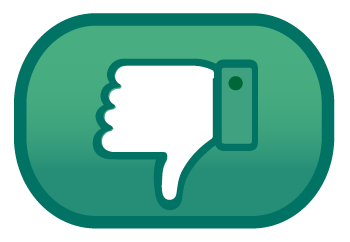What is Vicarious Trauma?
Vicarious trauma is the impact on the well-being of service providers due to continued exposure to traumatic experiences. It is common for service providers who work with survivors of sexual violence to experience vicarious trauma.[1]
Vicarious trauma presents itself in a variety of ways that are similar to the physical and emotional symptoms of post-traumatic stress disorder (PTSD). Service providers experiencing vicarious trauma often report nightmares, difficulty sleeping, mood changes, social withdrawal, and increased anger, irritability and/or disinterest in things they once enjoyed. Service providers experiencing vicarious trauma may feel hopeless in their work and/or attempt to avoid discussing clients' experiences with them.
It is important to recognize the difference between vicarious trauma and “burnout”. Burnout is the state of complete exhaustion from chronic work stress that gradually builds up over time. Time away from work or new job responsibilities can help to reduce burnout. However, Vicarious trauma is traumatic stress from exposure to stories or trauma experienced by clients.[2]
As service providers, you may be aware of the ways in which sexual violence can have profound psychological, emotional, and physical effects on survivors. It is important to recognize that sexual violence is complex and impacts everyone differently, including service providers. Even if you do not experience a traumatic experience directly, having close contact with survivors and their stories in your work, may cause you to experience similar reactions and emotions as your clients. Service providers who are survivors themselves may be more likely to experience vicarious trauma and/or have flashbacks or thoughts about their own trauma when working with survivors. Vicarious trauma is common, and you don’t have to work through it alone. Safe Helpline is here to support you as well as your clients today and every day.
How Can Safe Helpline Help?
If you are experiencing vicarious trauma, there are a number of resources that can provide assistance, such as mental health and counseling services. If you are experiencing a crisis or looking for additional support, you are welcome to connect with Safe Helpline staff.
Our Telephone and Online Helplines are available 24/7 as an anonymous, secure, and confidential resource for members of the DoD community, including service providers. Our trauma-informed staff are always here to help support you and your clients.
You may also benefit from searching our Responders Near Me database to find resources for support, both on base and in your community.
If you are looking for support on the go, our Safe Helpline Mobile App, available for free on the App Store and Google Play, offers crisis support and self-care resources anytime, anywhere.
Safe Helpline thanks you for the hard work you put in to support survivors in the DoD community. Experiencing vicarious trauma in your work as a service provider is common and you deserve support. We are here to support you, today and every day.
To learn more about vicarious trauma, please explore the resources below:
[1]“What Is Vicarious Trauma?” Office for Victims of Crime, ovc.ojp.gov/program/vtt/what-is-vicarious-trauma.
[2] ibid.


